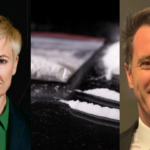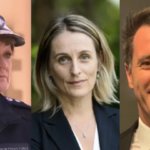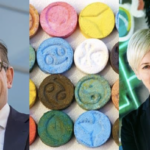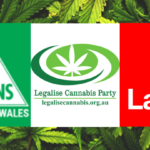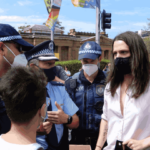NSW Premier Says No to Drug Decriminalisation, as the ACT Embarks on Bold Health Approach
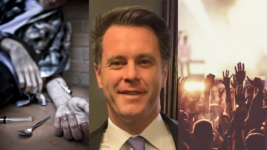
Finally, this week, drug decriminalisation came to Australian shores. Laws passed by a Labor Greens government in the ACT came into effect on Monday. This will mean less drug-related deaths, less normally law-abiding citizens arrested, and more time for police to see to real crime.
Yet, on that very same day, NSW Labor premier Chris Minns decided to rain down on Canberra’s parade, telling the Murdoch press that his government isn’t contemplating drug decriminalisation at present, but if he is voted in again, it might contemplate it some time after that.
A number of NSW Labor MPs, however, are likely disappointed with this decision, as they’ve spoken out about drug law reform in the past. They understand that more young people will die at festivals, because, just as the Coalition contains a lot of dinosaurs in its ranks, so too, does their party.
Minns told the Daily Telegraph on Monday that there’s “no mandate” for his government to follow the ACT. But this is pretty obvious, because as state leader, he’s supposed to set the agenda. And the ongoing deaths and overpolicing of First Nations people in regard to drugs, seems to be his mandate.
And, like many in this state, including some in the governing party, the Uniting Church is shocked by this decision.
Indeed, the Uniting Synod of NSW and the ACT are politely asking the premier “to not slam the door on evidence-based drug reform in this term of government”, as families experiencing drug dependency “can’t afford to wait years”.
Head in the sand, as usual
Those following the issue know that Labor, on taking office, brought with it the promise of holding a drug law reform summit, like the legendary Carr government NSW Drug Summit of 1999, that led to the Uniting Medically Supervised Injecting Centre (MSIC) Kings Cross, which has saved thousands of lives.
On Monday, Minns said, “We need to let the drug summit do its job. We don’t have a mandate to decriminalise.”
Yet, it seems the premier doesn’t understand the irony in this statement, as the summit should do its job, but Labor is presently preventing it from doing so.
“I couldn’t do that without the support of the people of the state of NSW,” the Labor leader added.
But why would the people of NSW not be supportive of this lifesaving measure, when a group of fellow Australians living within a territory inside our state’s borders are?
Of course, it’s a well-known fact that the ACT government is our nation’s most progressive. But NSW is supposed to be the premier state, and Minns, like Perrottet and Berejiklian and Baird and Troy Grant before him, appears to have a preference for the Reaganite “just say no” to drugs approach.
And just to be clear that a young premier doesn’t mean antiquated and deadly laws are to be replaced with lifesaving, evidence-based ones that brave politicians elsewhere have championed, Minns, whose spoken in support of cannabis reform whilst in opposition, said in April, that there’s no mandate for that either.
A plea to see reason
“We hoped for better. We waited nearly three years for the previous government to respond to the ice inquiry,” said Uniting Church Synod in NSW and the ACT outgoing moderator Reverand Simon Hansford in a statement released on Thursday.
“We believed that this new government would urgently deliver a summit that heard from the experts and those with lived experience and lead to evidence-based policy decisions on drug reform,” he added. “Decriminalisation must be on the table at the drug summit.”
But the Murdoch press furhter outlined that government sources did suggest that the drug summit won’t be held until close to the next election.
Meanwhile, the Pennington Institute’s Annual Overdose Report 2023 outlines that in Australia one person dies of an unintentional drug-induced death every four hours.
In Portugal, drug decriminalisation has been operating since 2001. At that time, one percent of the population was heroin dependent. These days, that nation has some of the lowest drug-related deaths and HIV infection rates in Europe. And no, Daily Terror, crime rates have not soared.
As the reverend further pointed out, the Berejiklian government-commissioned Inquiry into the Drug Ice recommended decriminalisation and the former premier, with a penchant for pork barrelling, promptly stuck her head in the sand about it, as did her successor Dominic Perrottet.
Yet, current NSW opposition leader, Liberal MP Mark Speakman did try for a watered-down version of decriminalisation against the rest of the Coalition cabinet last year. And while the decrim advocates didn’t think it cut the mustard, he was pushing against a lot of conservative dead weight.
In 2018, Uniting launched Fair Treatment, which is a campaign calling for drug decriminalisation in NSW.
And over 70 organisations support Fair Treatment, including the NSW Bar Association, the NSW Council for Civil Liberties, Harm Reduction Australia, Unharm, NUAA, Justice Action and Australian Lawyers for Human Rights.
“It’s too early to rule anything out and it will undermine the goodwill of those with lived experience of drug use, their families, those on the frontline in our emergency services, and the many academics, alcohol and drug experts who have all been hoping” that Labor will progress the warranted drug law reform policy, continued Reverand Hansford.
Praise be, Pettersson
ACT Health announced on Monday that from that day on, eleven of the most popularly used illicit substances are decriminalised in the territory, the seat of the Australian government, to “encourage people who use drugs to access health services”.
The department lists the limit amounts of each of these drugs that if exceeded, will result in a “simple drug offence notice”, rather than a criminal charge.
So, it can be expected that, as in Portugal and the US state of Oregon, there will be less drug-related harms, drug-related deaths and drug-related crime on the horizon.
However, Murdoch ran this headline, “Canberra to Become a Fantasyland for Parties as ACT Decriminalises Drugs”. And the article goes onto suggest that “Sydneysiders are expected to flock to Canberra for drug fuelled parties”.
And it’s this sort of conservative propaganda that encourages the continuing war on drugs, which prominent former heads of state and global intellectuals have condemned as a failure since 2011.
But let’s just think about it for a moment. People in Sydney’s eastern suburbs who regularly consume cocaine, despite its exorbitant price, are now going to take a trip to Canberra, not necessarily known as a party capital, so they can have the same drug fuelled parties they regularly have in Bondi, which warrant no police attention, down there instead.
ACT Labor MLA Michael Pettersson has done what many fellow politicians are too gutless to do. He championed the drug decriminalisation laws in the territory, after he successfully saw the personal possession of cannabis and a limited homegrow of plants passed into local law on 31 January 2020.
Pettersson told Sydney Criminal Lawyers last October that “drug laws have not been able to stop the use of drugs, and they do not stop people from using drugs”. And he added that what is needed in other Australian jurisdictions “is political will and activism within communities” to see reform.
A questionable legacy
So, it seems with pro-drug law reform NSW Labor MPs gagged on the question of decriminalisation, it will be left up to NSW Greens MLC Cate Faehrmann to keep the candle burning in regard to removing the criminal offences against personal use.
Although, the rest of the NSW Greens, Legalise Cannabis MLC Jeremy Buckingham and Independent MP Alex Greenwich will likely be throwing their weight behind her forthcoming drug decriminalisation bill.
Faehrmann has told SCL on a number of occasions since Labor took office that there’s no reason to even wait for the drug summit, as the ice inquiry findings and those of the NSW coronial inquiry into drug-related deaths at festivals both endorse the policy.
“All the experts are saying that we’ve got the insight we need for best practice drug law reform”, Faehrmann said earlier this month. “Yet here we are being told that we need a drug summit.”
Harm Reduction Australia ambassador Dr Alex Wodak is one of the foremost drug law reform experts in this country. His civil disobedience actions and advocacy in the 1980s and 1990s saw needle and syringe exchanges rolled out nationwide and it helped establish the supervised injecting room.
The doctor likes to point out on occasion that when former NSW premier and Australian foreign minister Bob Carr listed the 10 best achievements he made whilst in office, the Kings Cross medically supervised injecting centre was one of them.
However, it seems rather doubtful that premier Minns will be looking back on his announcement this week with pride in his later years, as all that’s really doing is costing lives and mistakenly attempting to secure future votes.



